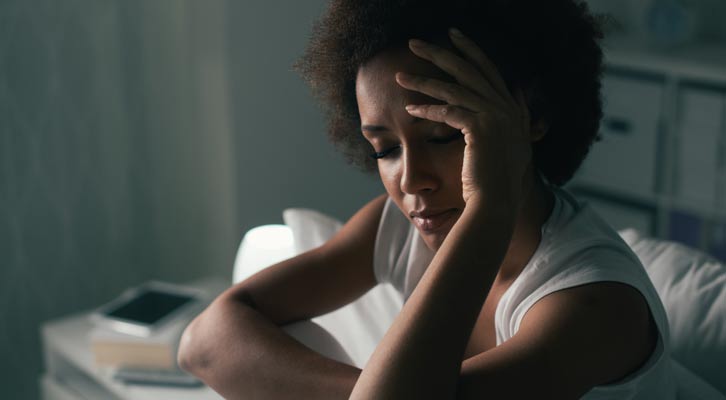Depression Treatments with Acupuncture NYC by Marc Bystock L.Ac.
"Acupuncture restores the natural flow of chemicals and signals in the body. For people with depression, acupuncture can reduce stress, improve circulation, encourage healthier states, and reduce anxiety. In addition, it helps balance the organs, reduces pain, and restores calm to the mind."
-Marc Bystock L.Ac.
Contact Marc Bystock, Leading Holistic Acupuncturist in NYC for a Free Consultation.
CONTACT MARC
VERIFY YOUR HEALTH INSURANCE
Marc Bystock NYC Acupuncturist Treating Depression in Midtown Manhattan NY 10016
What is Depression?
Depression is a mental disease. This condition can rob people of happiness and leave them feeling empty, alone, or worthless. People with this problem often feel sad and may withdraw from doing things that they enjoy. These people typically stop spending time with people they love isolating themselves to suffer in silence.
Depression is a problem for many people. This condition can affect as many as 40 million people over 18 in the United States alone each year. This condition may be temporary, slight, or chronic, depending on the person and the circumstances. Depression can occur because of medication, genetic, lifestyle, and health conditions. Unfortunately, treating this problem is not a simple fix or one solution fits all answer.
More women than men experience a major depressive disorder. A sobering statistic is that nearly 65 percent of people with depression develop some form of heart disease. Treating this problem requires a deep understanding of the body, reducing symptoms, and treating the underlying causes of the problem. While medication is often the first option, there are more holistic and natural methods of dealing with sadness and other side effects of depression.
Who Gets Depression?
Many people develop depression. It is a widespread problem all over the world. This disease will affect one in five people in their lifetime. Children, teenagers, and adults can suffer from this disease. It occurs twice as often in women than in men.
For some people, this is a hereditary condition. For others, life circumstances create an environment where depression is inevitable. This disease is a part of bipolar disorder, so someone with this condition already has it. Other mental health conditions and physical ailments can cause the disease to show up.
Types of Depressive Disorders
- Persistent depressive disorder
- Major depressive disorder
- Chronic depression
- Bipolar depression
- Prenatal depression
- Postpartum depression
- Seasonal mood disorder
- Atypical depression
- Unipolar depression
Symptoms of depression
Many different feelings go along with depression. Some disorders have some or all of the symptoms, while others have classic signs of depression. For many, anxiety goes hand in hand with depression, causing a myriad of symptoms like restlessness, trouble sleeping, problems eating, and inability to get to sleep. Other symptoms of the illness include:
- Deep feeling of dread
- Trouble getting restorative sleep
- Insomnia
- Not finding enjoyment in things a person loves
- Problems eating like binge eating or anorexia
- Unexplained weight gain or loss
- Feelings of worthlessness
- Guilty feelings
- Erratic activity
- Sluggish movements
- No energy
- Problems with endurance
- Irritability and moodiness
- Trouble concentrating or staying focused
What causes depression
So many things can cause depression. The death of someone close, too little sunlight, health conditions like diabetes, a genetic predisposition to the disease, and chemical imbalances in the brain can all cause depression symptoms to show up. Sometimes, lifestyle issues are a problem. For example, a smoker can develop depression, especially if the person begins smoking more than normal.
Life changes like something traumatizing often trigger depressive symptoms. Grief over a pet or lost loved one, the loss of a job, a change in the custody of a child, or not finishing college often cause a person to experience depression symptoms. Sometimes, these problems do not go away on their own. Bad habits can contribute to sad feelings too. Poor diet, not enough sleep, too much caffeine, and excessive alcohol or drug use can cause depression.
The primary way to differentiate between grief and depression is how the symptoms manifest. In grief, the person may feel these symptoms from time to time. They may be worse some days than others. A person grieving over a loss will often have confidence in themselves, where a person who is depressed will feel worthless.
For some people, time outdoors, spending time with family and friends, exercising, eating healthy, or playing with a pet can help. Many times, people are given an antidepressant to help alleviate the symptoms of depression. The problem with these drugs is that it takes trial and error to find the one that works the best. For example, depression medicine often takes three to four weeks of regular use to build up in the system to see if it works.
During this time, the wrong medication can worsen symptoms. Then, a person must wean off the medication, wait a few days or a week, and then try another medication. It may take four or five bouts of this activity to find the right medicine. Some people need a combination of therapies to fix the problem. For these people, it may take months to get relief.
Depression Acupuncture Treatments
Acupuncture restores the natural flow of chemicals and signals in the body. Placing needles in specific points in the body helps promote healthy connections between the brain and the body. For people with depression, acupuncture can reduce stress, improve circulation, encourage healthier states, and reduce anxiety. In addition, it helps balance the organs, reduces pain, and restores calm to the mind.
Contact NYC Acupuncturist Marc Bystock L.Ac. for Acupuncture Depression Treatments
Marc Bystock is a licensed acupuncture therapist in NYC. Treating depression and other health problems naturally is how we help people suffering from mood disorders, sadness, and chronic issues with anxiety or suicidal tendencies.
To find out more about how acupuncture can help you, please give our office a call at 212-696-4325. We offer a free consultation to allow you to talk with Marc to see if acupuncture is a treatment you feel will help your depression.
Please contact Marc
today.
Additional Links







